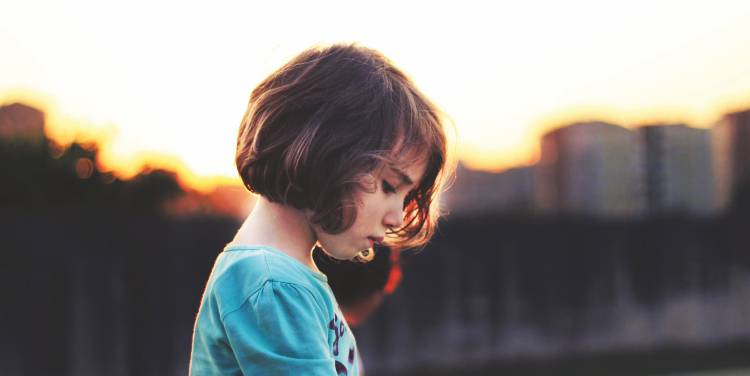The relentless and disturbing news stories about rape occurring in places we daily frequent has impacted our nation’s sense of security. We have become fearful for the safety of ourselves and our loved ones. As a mother of a daughter and a son, it’s horrifying to think that our children might not make it home from school or a movie or mall, regardless if the child is a male or female.
An Epidemiological Overview of Child Sexual Abuse, a study on child sexual abuse in India, offers following figures on the phenomenon: India is home to 19% of the world’s children. As per the 2001 census, about 440 million Indians were below 18 years of age and constituted 42% of total population. The government estimated that 40% of India’s children are susceptible to threats like homelessness, trafficking, drug abuse, forced labour, and crime. In India, every second child is exposed to some form of sexual abuse, and every fifth child faces critical forms of it. According to another study on child abuse by Ministry of Women and Child Development Government of India in 2007, India is the only nation where the number of boys abused is higher than girls.
If we are concerned about the safety of our own children and family, we should also be concerned about our neighbours.
So, what can we do? Do you think the Church can play a useful role in preventing sexual violence? What could your church do? Do we know the laws that protect our children? What should we be cautious about as we respond to the issue of sexual violence?
Romans 13:9—“For the commandments, ‘You shall not commit adultery, You shall not murder, You shall not steal, You shall not covet,’ and any other commandment, are summed up in this word: ‘You shall love your neighbour as yourself.”
Or James 2:8—“If you really fulfill the royal law according to the scripture, ‘You shall love your neighbour as yourself,’ you are doing well.”
If we are concerned about the safety of our own children and family, we should also be concerned about our neighbours. How do we make our community safe? Do we give families of rape victims the same kind of support while they are grieving that we give to families of people who have died in accidents or by illness?
The command to love is accompanied by actions we can do to demonstrate love.
Psalm 82:3—Give justice to the weak and the fatherless; maintain the right of the afflicted and the destitute.
The two actionable steps we can take are:
DEFEND THE VICTIM PUBLICLY
The Bible commands us to defend the weak (Psa 82:3), does that command extend beyond reactive defense to include proactive defense? Scripture clearly shows both ‘proactive’ and ‘reactive’ defense in the actions of Christ and the path that he showed us in actively defending the weak and the powerless. He ate with, healed, honoured, pardoned, and spent time with those who were shunned by the public, such as acknowledging the sinful woman who washed his feet or rescuing the adulterous woman from being stoned to death. These were public incidents that addressed the human perceptions, injustice, and the hearts involved.
Proactive defense involves building systems that protect the weak and mechanisms that prevent injustice. This includes promulgating and amending laws that are just; enforcing the law and holding the offender accountable; providing victim protection, care, and support during restoration stage; and unconditional acceptance of survivors combined with efforts to reintegrate them into normal life.
It is very critical in our nation today that we do not allow anyone to divert the criminal atrocity and inhumanity by bringing in hate or division based on prejudice.
Justice and Hope as an organization is building a Safety First System in schools and communities, that looks at existing rules, culture, and systems that are followed. They identify areas of potential risk that may allow a child to be in a situation of vulnerability to sexual predators. Creating secure spaces, installing and monitoring cameras, building a safe environment of trust for a victim to share without personal consequences, etc., are proactive steps that a community, orphanage, or school can adopt to prevent sexual violence.
Reactive defense is needed with urgency, as the victim needs to be separated from the violence immediately. Intervening in an active crime situation is the only right choice, but it could be a dangerous choice. For example, if a person sees someone being harassed or raped and intervenes, the consequences could possibly extend to endangering their life. What would we choose to do in such a situation? Walk away? God gives courage and wisdom in such times, but loving our neighbour who is being hurt can never be looking the other way; it is instead acting as the good Samaritan and coming to aid.
BE CAUTIOUS ABOUT THE INTENTION
In the recent cases that held national attention, such as Asifa’s gruesome rape and murder, the case took on the colour of religion and politics. The command to ‘love your neighbour’ has no caste, colour, gender, political or religious affiliation to it. It is very critical in our nation today that we do not allow anyone to divert the criminal atrocity and inhumanity by bringing in hate or division based on prejudice.
We love and defend against manmade injustice because every person is created wonderfully and loved by God. And as we defend, let us be cautious not to adhere or support any personal, political or religious agenda. Let our intention be to protect human rights, bring justice, and to love and restore both the victim and the offender (while holding her/him accountable).
As citizens and fellow human beings, let us remain proactive to build safer communities, reactive in times of injustice to rescue the suffering and remain humane in our intentions as we help restore those who have experienced sexual violence.






